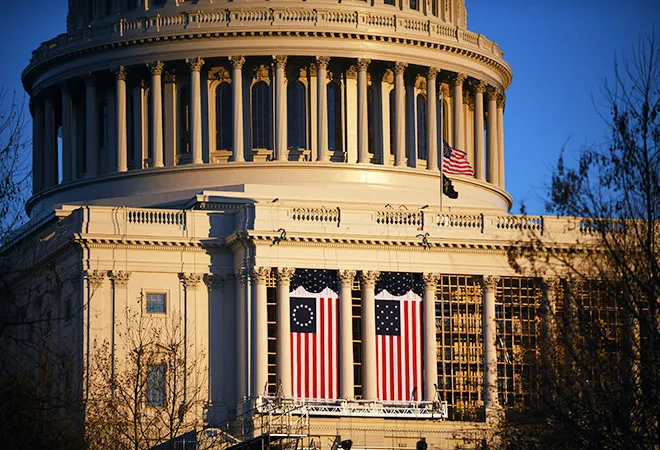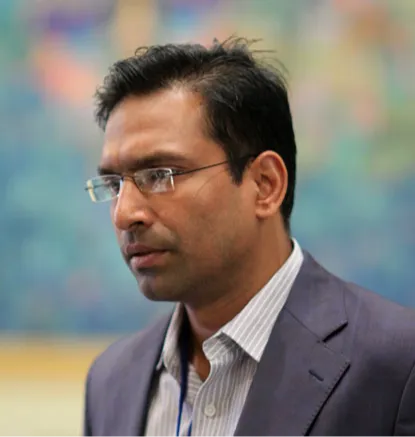
On 6th January, a stunned world watched far Right extremists and thousands of Donald Trump supporters invade Capitol Hill, the high seat of American democracy, to disrupt the Congressional ratification of Joe Biden’s victory in the presidential election. While democracies across the world expressed shock and distress over this unprecedented violence in the world’s oldest—and most powerful—democracy, authoritarian powers and semi-democracies seized the opportunity to poke fun at the democratic system and its many irritants.
China’s spokespersons and its state-controlled media had a field day, littering social media platforms with caustic memes and sarcastic puns. A meme posted by the youth wing of the Communist Party of China described the Capitol riot as a “beautiful sight”. While the schadenfreude of dictatorial China and other similarly authoritarian countries over the Capitol violence is not difficult to fathom, what is intriguing is that some constituencies in the democratic world, were also seen relishing this spectacle. For all its flaws, and as this incident has shown, the US still remains the best bet for democracy and freedom as it provides a robust institutional counter to authoritarian forces.
For all its flaws, and as this incident has shown, the US still remains the best bet for democracy and freedom as it provides a robust institutional counter to authoritarian forces
So where does the US go from here? With the march on the Capitol and its storming taking place in the digital age and social media platforms broadcasting it globally in real time and millions of users amplifying each and every micro-detail, this shameful incident will continue to haunt America even if the country were to return to a semblance of normalcy—there are multiple fires raging at the moment, cutting across ideologies, that need to be doused—after Joe Biden takes over the mantle.
We must realise that what happened on 6th January is not an isolated incident. It is as much a culmination of the growing polarisation, demagoguery and populist rhetoric of an incumbent President, as it is of the accelerated decaying of basic values, norms and institutional architecture—key tools that make a democracy robust. While populism and demagoguery may be episodic, the rapid erosion of values and decay of institutions pave the way to mistrust and lend credence to conspiracy theories. This is what facilitated Trump and many of his Republican colleagues to indulge in gaslighting before, during and after the election.
While populism and demagoguery may be episodic, the rapid erosion of values and decay of institutions pave the way to mistrust and lend credence to conspiracy theories. This is what facilitated Trump and many of his Republican colleagues to indulge in gaslighting before, during and after the election
The key pillars of the democratic structure are in urgent need of repair. Of particular concern are its antiquated and opaque electoral college system which operates without the oversight of an independent federal election commission. The corrosive gerrymandering of electoral constituencies by states and legislators, along with presidential veto powers causing frequent standoffs and legislative paralysis, also play a significant role in constantly eroding the external appeal of American democracy.
Electoral System
The world is aware of what the US has been doing for decades in other countries by way of its aggressive policy of democracy promotion. The US Government has been overtly and covertly funding human rights activists, despatching officials to conflict zones, issuing demarches, sending observers and deploying troops (Afghanistan, Iraq, Kuwait) to ‘facilitate democratic transition’. But the world knows little about the fragility and flaws ailing America’s own democracy.
For instance, the world knows next to nothing about America’s deeply complex and outdated electoral system. Indeed, many Americans are unclear about how this system operates. This became obvious during the counting of ballots; the same perplexity has marked previous presidential elections. Trump’s relentless attacks on electoral rolls, the admittedly controversial ‘mail-in’ ballots, the incredibly long time taken for counting the votes, and dozens of lawsuits contesting the voting process and the counting, leave nothing to rave about the oldest democracy. In sharp contrast, other democracies, including India, the world’s biggest democracy, with all their shortcomings, organise elections far more efficiently.
At the core of America’s troublesome elections is its historically decentralised electoral system which permits each state to decide its own voting methods and procedures, which are often at variance with those of another state. Expectedly, this has produced a wide variety of voting systems, some of them bizarre and bereft of logic.
At the core of America’s troublesome elections is its historically decentralised electoral system which permits each state to decide its own voting methods and procedures, which are often at variance with those of another state
For example, not only do many states still use old-fashioned paper ballots, they also allow post-dated ballots, mail-in ballots, drop-off ballots and provisional ballots for different sections of voters. Despite their proven and tamper-proof advantages over paper ballots, electronic voting machines have been shunned by most states in the US. As a consequence, it takes days and even weeks to know the final results, which in turn breeds valid criticism, wild speculation and conspiracy theories.
Admirable as the American principles of decentralisation and federalism may be, it is inexplicable why the national election process cannot be coordinated by an independent federal election commission like it is done, efficiently and transparently, in other countries. So far, the US electoral system has endured in spite of controversies largely because state and local level electoral officials are seen to have honoured their pledge to the Constitution. With sharpening polarization and increasing visible partisanship among officials, the future looks uncertain. The contested 2020 election has sown the proverbial dragon’s seeds for bigger conspiracy theories of ‘stolen votes’ and ‘manipulated results’. In brief, America’s archaic electoral system will be weaponised by whoever loses an election.
Antiquated Electoral College
More than the electoral process, the bigger challenge that the US and its democracy face is America’s 231-year-old electoral college system. This ‘slave era’ system is at the root of many problems that American democracy faces today. Fearing that a direct election may result in the ‘tyranny of the majority’ and lead to a populist demagogue coming to power, the framers of the US Constitution reposed their trust in an electoral college rather than the wisdom of voters. They wanted to rein in ‘passions of the people’ by disallowing a direct election. Trump’s election in 2016 disproved them.
The real reason, however, for designing an intermediary electoral system was to offset the advantage of the Northern states over the slave-owning Southern States. Black slaves did not have voting rights in the 1780s; universal franchise in America came much later, way after other democracies had adopted or were born with this right.
With its ‘winner-take-all’ rule, a party that wins the popular vote (even by a small margin) in a state, also wins the entire slate of electors in that state. That renders vote shares irrelevant. In a sense, the winner-take-all rule makes turnout and voting in states that have been historically known as ‘Red’ states and ‘Blue’ states largely meaningless and results predictable. Only a handful of ‘battleground states’, where the smallest swing determines the outcome, actually decide the fate of a presidential candidate.
James Madison, father of the US Constitution and one of the lead authors of the electoral college and winner-take-all system, later found it deeply flawed as it does not reflect the diversity of America’s population. In 1823 he argued against this unfair system and sought an end to it. However, in the two centuries that have followed Madison’s warning, America has not deemed it necessary to change its electoral process. The long transition from one administration to another with the incumbent President free to use his privileges ranging from issuing executive orders to vetoing legislation, or in the extreme, as the current debate suggests, even ordering a nuclear strike, only underscores the many infirmities of American democracy.
The distressing scene of the US Capitol under siege calls upon all Americans to look within. Instead of hosting a global democracy summit, the Biden Administration would do well to focus on removing those infirmities and healing democracy within
The distressing scene of the US Capitol under siege calls upon all Americans to look within. Instead of hosting a global democracy summit, the Biden Administration would do well to focus on removing those infirmities and healing democracy within. He would be well advised to have a conference for the U.S. of A. on the urgent need for reforming its conduct of democracy and elections. America urgently needs to put its act together and undertake institutional and democratic renewal. From overhauling its outmoded electoral system, electoral college, incredibly lengthy transition process to curbing the limitless presidential power to pardon, the US needs a craft a new ‘Marshall Plan’ for rebuilding its creaky democracy.
The views expressed above belong to the author(s). ORF research and analyses now available on Telegram! Click here to access our curated content — blogs, longforms and interviews.




 PREV
PREV


